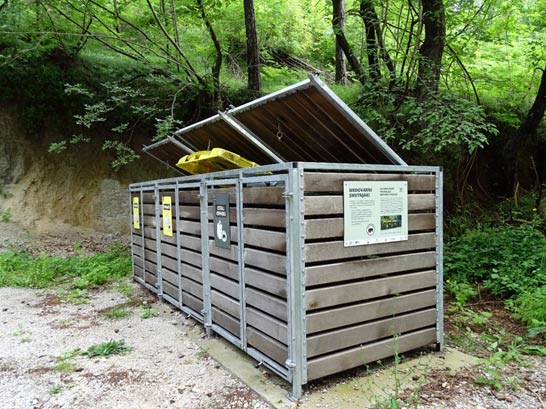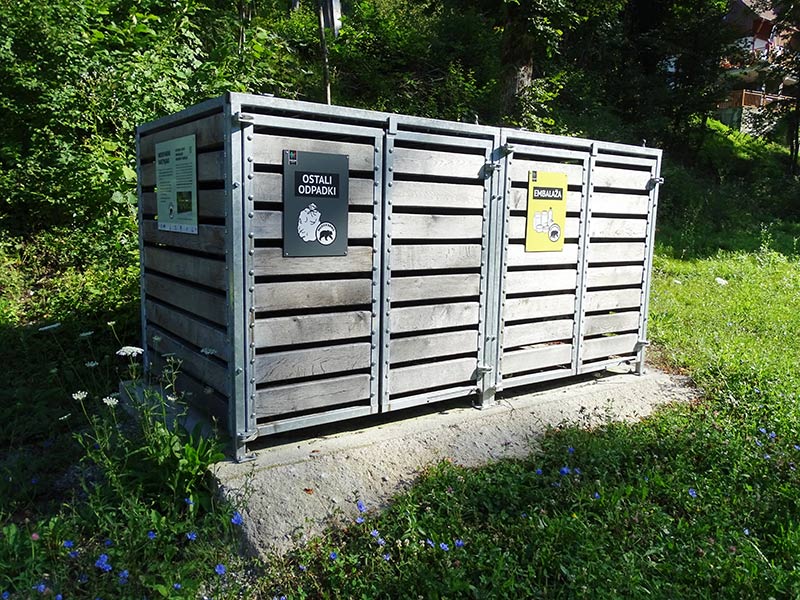Prevention of encounters to human settlements
FOOD AVAILLABILITY
Brown bears often seek out anthropogenic foods. These include garbage, composted residues, slaughterhouse waste, etc.
TO REMEMBER
Brown bears are highly intelligent and can quickly detect accessible food sources and remember the locations.
RETURNING
Because it gets reward in food, it may return to the site.
HABITUATION
Since such sources of food are usually found near human settlements, brown bears can gradually lose their natural fear of humans. In these situations, they can become habituated and may be dangerous. Brown bears can also start to connect food with the presence of a human, leading to conflict situations and in extreme cases, the problematic brown bear being legally shot.
 photo:
Bear-proof housings for large containers.
photo:
Bear-proof housings for large containers.
Human can prevent bears from becoming food conditioned and habituated by securing attractants and adjusting their behaviors.
 photo:
If properly used, bear-proof housings can prevent brown bears access.
photo:
If properly used, bear-proof housings can prevent brown bears access.
To keep brown bears away from the human settlements, prevention of access to anthropogenic food sources is crucial. According to the Slovene rural tradition, almost every household has an unprotected compost bin. In order to limit the access to compost bin contents, bear-proof compost bin were developed within the LIFE DINALP BEAR project.
In addition to securing household compost bins, it is important to prevent bears from accessing other sources of waste. Subsequently, individual bear-proof garbage cans and bear-proof housings for large containers were distributed where high numbers of conflicts occurred (hotspots) under the the LIFE DINALP BEAR project. To see how bear-proof the garbage cans are, please see this link from ZOO Ljubljana.



